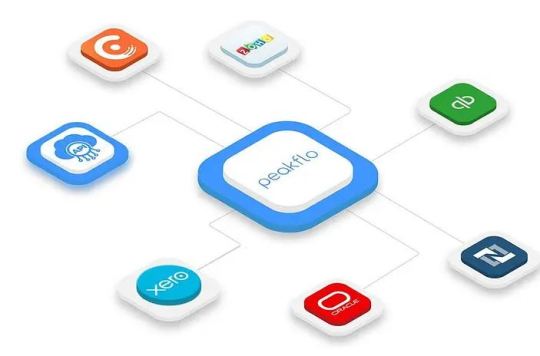#BusinessCashFlow
Explore tagged Tumblr posts
Text
What Is a Business Loan? A business loan is a financial product designed to help companies meet their working capital or investment needs. Typically, a bank, non-bank lender, or private investor provides a lump sum or revolving credit that the business agrees to repay with interest.

View On WordPress
#AlternativeLending#BuildToGrow#BusinessCashFlow#BusinessCredit#BusinessFinancing#BusinessFunding#BusinessLineOfCredit#BusinessLoan#BusinessSuccess#CapitalForGrowth#DigitalLending#EquipmentLoan#FinancialGrowth#FintechFunding#FundingForGrowth#FundingJourney#FundingOptions#GrowYourBusiness#InvoiceFinancing#LoanForBusiness#NonBankLenders#ScalingUp#SmallBusinessLoan#SmartFinancing#SMELoans#StartupFunding#StartupSuccess#StrategicFunding#UnsecuredLoan#WorkingCapital
0 notes
Text

Experience Personalized Service with State Financial: Your Factoring Company in California At State Financial, factoring company in California is dedicated to offering personalized service to meet your business’s financial needs. We specialize in asset-based lending, providing flexible working lines of credit based on your accounts receivable, inventory, and equipment. Our experienced team ensures quick approvals and tailored solutions, making us the ideal partner for managing cash flow and supporting business growth.
0 notes
Text
Unlock Your Cash Flow Potential with Direct Credit

Unlock Your Cash Flow Potential with Direct Credit.
We are your go-to bill discounting consultant, dedicated to helping businesses optimize their working capital by turning unpaid invoices into immediate cash. Our expert team and tailored solutions are here to empower your financial stability and growth. Get in touch with us today to elevate your business to new heights.
#DirectCredit #BillDiscounting #WorkingCapital #FinancialEmpowerment #BillDiscounting #InvoiceFinance #WorkingCapital #CashFlowSolutions #BusinessFunding #FinancialConsultant #CashManagement #InvoiceDiscounting #BusinessCashFlow #WorkingCapitalOptimization
0 notes
Photo

Cashflow Management and Automated Accounts Receivable Software
Peakflo was started with one goal - to make it easy for anyone to access financial tools that increase cash flow and net margins in B2B SMEs.
0 notes
Photo

Maintaing a positive cash flow is an essential part of business growth & profitability too. If you don't have the cash flow to keep operations moving, your business will grind to a halt. The good news is that we bring to you, 4 specified tips you can do to keep a positive cash flow & insulate your business from cash fluctuations! Do let us know the problems you face while maintaining cash flow in your business in the comments below! For more such tips follow @buddingbusinesss #business #startup #entrepreneur #entrepreneurship #ownbusiness #accountant #companysecretary #cashflow #cash #businesscashflow #ca #cafoundation #compliance #taxation #finances #financialfreedom #financial #businessgoals #businessgrowth #gst #businessowner #company #simplehitohhai #buddingbusiness https://www.instagram.com/p/CRCAH3SnxE9/?utm_medium=tumblr
#business#startup#entrepreneur#entrepreneurship#ownbusiness#accountant#companysecretary#cashflow#cash#businesscashflow#ca#cafoundation#compliance#taxation#finances#financialfreedom#financial#businessgoals#businessgrowth#gst#businessowner#company#simplehitohhai#buddingbusiness
0 notes
Text
3 Financial Tips for Young and Aspiring Small Business Entrepreneurs

Becoming your own boss and starting your dream business can be intimidating, especially when you’re a novice and just entering the industry. Young and aspiring entrepreneurs face a lot of challenges like creating a business plan, managing time, hiring employees, delegating tasks, finding markets, marketing products, and more.
Besides these hurdles, it’s critical that you build a robust financial life and establish your financial goals so you can take control of your financial life as a young business owner. Here are seven of the best financial tips that entrepreneurs can apply to their journey.
Plan for Raising Capital

If you’re planning to start your new venture, you may need extra working capital to cover various business costs to successfully run and grow your startup. If you don’t have sufficient funds to start your business, you need to find out where you can raise money from.
Today there are a plethora of options available for aspiring entrepreneurs to obtain capital, from traditional banks to credit unions, online alternative lenders, and other non-banking financial institutions. You can also use an online lending marketplace to find and compare a variety of startup loan offers from multiple lenders and choose one that best fits your current financial needs and budget.
Determine how much money you need, how you’ll use it, and what are your plans to repay the borrowed funds. When determining how much capital you need, it’s always a great idea to take twice as long as you originally think.
Develop Your Financial Goals

When you are a novice entrepreneur, it is easy to waste time daydreaming about your idea instead of setting clear financial and business goals. You need to set strong financial goals that drive your young business forward. Your mission and vision should have a clearly stated purpose when developing your business plan as well as your business goals and objectives.
Read Also: 5 Financial Resolutions for Small Businesses in 2021
Here are some valuable tips to develop financial goals for your new venture.
Make a realistic budget to know your financial limits
Save an emergency fund to cover differential costs during an unexpected time
Spend your money wisely
Stay focused on your business goals to make smarter financial decisions
Pay off your debt on time
Set smaller financial goals to achieve bigger financial goals
Manage Your Business Cash Flow

For startups, running out of money can be catastrophic. Poor cash flow is one of the most common reasons for startup failure. If you fail to manage cash flow within the first year, you will most likely not survive past the second year, so it’s extremely important for all businesses.
Here are some of the many important tips to manage cash flow for startups
Use cash flow forecasting and management software to get a real-time picture of your past, present, and future cash flow
Smartly manage your accounts receivables - encourage customers to pay up faster so you can control and close the gap between invoicing and payment
Keep your books accurate and up to date
Keep your personal and business expenses separate
Build a cash reserve
Consider adequate small business financing to solve cash flow issues in your startup
Final Thoughts
Though becoming an entrepreneur can be difficult, following these tips will help you get your business off the ground. By planning, organizing, tracking your purchases, spending money wisely, working with a professional, and learning new things, you’ll be ahead of the game as a new and aspiring entrepreneur.
#BusinessCashFlow#BusinessLoans#CashFlowForecasting#FinancialTips2021#BusinessEntrepreneurs#PlanforRaisingCapital#DevelopFinancialGoals#ManageCashFlowTips
0 notes
Video
youtube
Revealed: Tips To Improve Cashflow Amidst COVID19 | Expert Business Tips
0 notes
Link
you can always take help from a reputed organization like Marketlend and to consider some of their cash flow lending products. Find out more: https://www.marketlend.com.au/
0 notes
Text
Staying on Top of Your #BusinessCashFlow

Staying on Top of Your Business Cash Flow:
Today, we’re going to talk about cash flow. As the old adage goes: cash is king in business. So if this is the case, then the cash flow is the lifeline. However, there will be times, especially as a small business when you will experience a cash flow shortage that will have you feeling more pauper than the prince. This is normal, but it’s important to keep on top of it as soon as possible.
In fact, cash flow shortage has been listed as one of the top 5 reasons that so many businesses fail in their infancy. Therefore, it’s important to develop a certain reverence for cash. Whether you like it or not, cash owns you and your business. What are we going to do about it?
Number 1: Always know what cash is coming in and out of your business. This means keeping up to date documents and cash flow projections and revisiting them regularly.
Number 2: Always make sure that your planned income comes before your planned expenses. This may seem obvious, but you’d be amazed by how many people get caught out when they don’t have enough money to pay their staff or their suppliers.
Number 3: Budget for emergencies or unexpected expenses. The general wisdom here is to always have one month’s of expenses aside for any tricky situations that you may encounter.
Number 4: Invoice promptly and always chase up any late invoices immediately. We would also suggest that you have a contract for every client that you have. In the contract, lay out your expectations of payment. This could include whether or not you’re going to charge any interest or late payments. It could also be a very good idea to charge a deposit for larger paying jobs.
Number 5: Always think about the money. It’s really a good idea to assess your cash flow before you make any decisions pertaining to your business.
Number 6: Schmooze your financiers and suppliers. These people can be very, very handy if things get tough. Having good relationships with them could stand you in very good stead if you ever experience a cash flow shortage.
Number 7: Take into account any short term fluctuations that may not show up in your weekly or monthly budgets. Are you going to have some downtime over Christmas? Is there another period in the year when you experience a little bit of a lull?
Number 8: Develop warning signs that could help you when unexpected changes could cause your business to run out of money, which leads us nicely.
To recap what we’ve learned: do focus on receiving payments, do take into account any fluctuations that may happen throughout the year, and definitely do keep your finances in mind with every single business decision that you make. Don’t always assume that you’ll be paid on time. Don’t make any unnecessary expenditures, especially without consulting your cash flow first.
0 notes
Text
February Newsletter
Hi, and welcome to the February newsletter.
This month we look at the cashflow crunch that can hit businesses after the Christmas period and what to do about it in our piece From Ho Ho Ho to – Oh Oh No!.
We have a case study on how we have been involved in turning a business in bad shape to a business in good shape and our final story is something every business owner should consider. What happens if you have to make an unexpected exit from your business.
I hope you find this information useful
From Ho Ho Ho to – Oh, Oh No!
The weeks leading into Christmas can be a good time for business owners. There’s a buzz in the air, people are busy, keen to spend money and finalise their to-do lists before the holidays. Many people do a lot of business and rush to complete tasks before Christmas, and of course Christmas shopping keeps retail businesses very busy.
It’s a trend that affects many industries. Project based businesses like construction companies often try to wrap up projects prior to Christmas allowing them to start the new year with a clean slate. And Government departments or larger businesses may have half-yearly budget allocations to use up before the end of December, creating a strong imperative to spend.
If your business enjoys the cash flow rush from this pre-Christmas spending frenzy, you may feel that business is good heading into Christmas and you’ll start the silly season on a high, feeling confident in your cashflow and sales numbers.
You also may neglect to make plans for what happens to your business after Christmas. Instead, you head off on a well-deserved Christmas break.
While you’re on holidays, and your sales funnel is empty, the bills keep coming. Rent, finance repayments, insurances and payroll (often the biggest bill) all fall due as normal. At the same time, your income levels drop significantly from their pre-Christmas heights.
It can take until early February for the wheels of your business to be turning back at full capacity. By then, you may have two months of expenses paid with no solid income to offset them. Cash levels could be getting low.
Now, it’s early Feb, and your income needs to kick back in fast. All that great business you were experiencing before Christmas just isn’t enough to get you through a two-month period of low or no sales. If you’re not careful you could start facing some serious cash flow issues.
How do you make sure this doesn’t happen to you?
Plan for it. It happens every year. It shouldn’t be a surprise. You can be preparing for January’s cash deficit months in advance with budgeting and cash flow forecasts and a solid plan of action.
Knowing which tools you can access to fund your business until sales rise again will prevent your stress levels rising too. There are several ways you can prepare for short-term cash flow issues.
It’s probably best to use a mix of these options, relying on one solution alone could be risky:
Short term loans
Increase your sales efforts – try to set up business for January in December so you have sales on your books and some ready cash to start the year.
Offer discounts to clients for paying COD to boost your cash coffers
Negotiate with creditors to extend terms for a month or two
Being prepared and realistic about your potential cash flow shortage at this time of year is a good place to start. Then you can plan for it and never experience that nasty January ‘no/low cashflow’ surprise ever again.
For assistance with any of the above solutions or for some advice on preparing an accurate budget and cash flow forecast, contact Peter at [email protected].
A business transformed – from down and in debt to breaking records
I started working with a business about 4 years ago. At the time they had just implemented a new business system, but it was poorly set up. It was 11 months after financial year end and they still hadn’t done their tax return, in fact, they didn’t know if they were making a profit or a loss. To make matters worse they had debt…big debt. They owed hundreds of thousands of dollars to a major supplier and a large debt to the ATO.
This business’ situation was dire, and there was serious doubt about its ability to continue at all. The owner was keeping the business afloat via loans from family members. Something had to change, or it would fail.
Luckily, they came to me and I was able to step in and help. Over the last 4 years, with our assistance, the business has done the following to turn things around:
Instigated cost management and control
Implemented regular cash flow forecasting, including planning to pay down the large debt
Completed a full review and correction of the business system so it now reports accurate numbers within days of month end
Established monthly reporting of profit and loss
Developed sales and marketing plans and budgets
After 4 years the positive results are significant, and the business is flourishing. It has benefited hugely from the structure and processes our team has put in.
All debt is paid down
The new systems have allowed for a leaner accounting department which produces on time, detailed and accurate reports.
The sales department has just enjoyed 6 consecutive months of above budget sales
Reports are produced monthly, analysed and issues acted upon
The business owner is on top of all aspects of his business and is confident of all the numbers presented to him – this is perhaps the most important success
I am now a highly trusted and valued member of his team
Some businesses find themselves in bad place, almost by accident. Your situation may seem hopeless, but with the right people around you and a willingness to put in the time, you can turn a struggling business around. Sometimes tough decisions are necessary, it’s not always a straightforward path and there is no magic bullet. But it’s possible, and the results are worth the hard graft.
Have you planned for an unplanned exit?
Most business owners have thought about exit plans and how they intend to leave their business and have created a rough idea of what they’re going to do when the time comes. For an expected and inevitable succession, a majority expect to sell or hand down to the next generation, in other words, an organised departure.
But what if you need to exit the business in an unplanned manner? What if things don’t work out as you thought?
Recently I have seen and heard a few stories where business owners have experienced circumstances which have caused them to leave their business unexpectedly. An illness or injury is the most common reason. In these cases, the owner has found on very short notice they can no longer work in their business. If they’re lucky it’s just for a short period, but sometimes it’s long-term, or permanent.
What do you do when this happens? Do you have a plan? Or even just a rough idea of what you would do if this happened to you and your business?
Leaving in a rush for an unknown period of time could mean your business may simply have to close its doors. Selling in a hurry may result in a lower price than the business is worth.
To avoid the above, you should plan for an unplanned exit. Here’s how:
Be absolutely certain you have the right insurances in place. These are Keyman, Life Insurance and Income Protection
Think about key people who can keep the business ticking if you are away for a period of time. Train them up so they can do what you do in your absence
Delegate your role in different ways so the business isn’t totally dependent on you
Start to formulate some ideas about a succession plan
This sort of planning does require some thought about a less than pleasant topics. And an unexpected exit is certainly not an event we would wish upon anyone. But to be unprepared is to risk everything you’ve worked so hard for.
Even though you should always hope your exit will go according to your personal plan, it is imperative to prepare for an unexpected exit. If you do experience a forced exit, the time required to sell your business and whether or not you maximise its value at sale will be directly related to your preparedness. A well-planned exit keeps the control in your hands.
For advice on unexpected exit planning, turning your business around or post-Christmas cash flow planning please contact Peter from In Financial Control. He can help you with any of these topics and many more business-related questions too. Email [email protected].
�A�
#smallbusines#exit planning#businessturnaround#smallbusiness#businesscashflow#parttimecfo#SME#businessstrategy
0 notes
Link
Common myths about factoring busted
0 notes